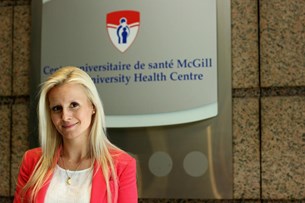Meeting
2021 ASCO Annual Meeting

McGill University, Montreal, QC, Canada
Genevieve Chaput , Jonathan Sussman , Tristan Williams
Background: As survivorship provision declines within cancer centres, primary care providers are increasingly entrusted in the follow-up care of cancer survivors. Empowering specialists and primary care providers about survivorship through educational interventions is essential. Interspecialty education is poorly integrated into residency training, which may impede collaboration between different providers in practice. Interspecialty partnership can positively impact patient and resource-use outcomes. The aim of this study was to assess if a cancer survivorship learning suite (LS) impacts attitudes of family medicine, radiation oncology and medical oncology trainees towards interspecialty collaboration in Montreal, Canada. Methods: A survivorship (LS) developed by a Manitoba-based team under the sponsorship of a Canadian Partnership Against Cancer grant held by Cancer Care Ontario was delivered to 49 McGill University family medicine, radiation oncology, and medical oncology trainees. The LS comprised in-person delivery of a 3-hour case-based workshop, presented by a radiation oncologist and a family physician, both experienced in the field of survivorship. An adapted version of the Readiness for Interprofessional Learning Scale (RIPLS) was completed by participants before and after workshop delivery. Statistical analyses included non-parametric (Wilcoxon Signed rank tests) comparisons. Results: Response rate was 63.2%, and included family medicine (65%), radiation oncology (26%), and medical oncology (10%) trainees, respectively. Following the workshop, participants were significantly more likely to agree that interspecialty learning in residency “would help physicians become better team workers”, (Z = 2.7, p< 0.008, n = 31), and “improves relationships between physicians of different specialties in independent practice afterwards”, (Z = 2.6, p< 0.009, n = 31). Participants were also significantly more likely to agree that “shared interspecialty learning < would > increase < their > ability to understand clinical problems”, (Z = 2.8, p< 0.005, n = 31). Conclusions: While much literature has focused on interprofessional collaboration at different levels of education and practice, few studies have assessed interspecialty collaboration of physicians of different specialties. This survivorship LS demonstrated favorable changes in attitudes towards interspecialty learning.
Disclaimer
This material on this page is ©2024 American Society of Clinical Oncology, all rights reserved. Licensing available upon request. For more information, please contact licensing@asco.org
2021 ASCO Annual Meeting
Publication Only
Publication Only: Professional Development and Education Advances
Medical Education and Professional Development
Education Research
J Clin Oncol 39, 2021 (suppl 15; abstr e23003)
10.1200/JCO.2021.39.15_suppl.e23003
e23003
Abstract Disclosures
2020 ASCO Quality Care Symposium
First Author: Genevieve Chaput
2023 ASCO Annual Meeting
First Author: Ilana Yurkiewicz
2019 ASCO Annual Meeting
First Author: Hira Latif
2023 ASCO Annual Meeting
First Author: Ashley Pariser